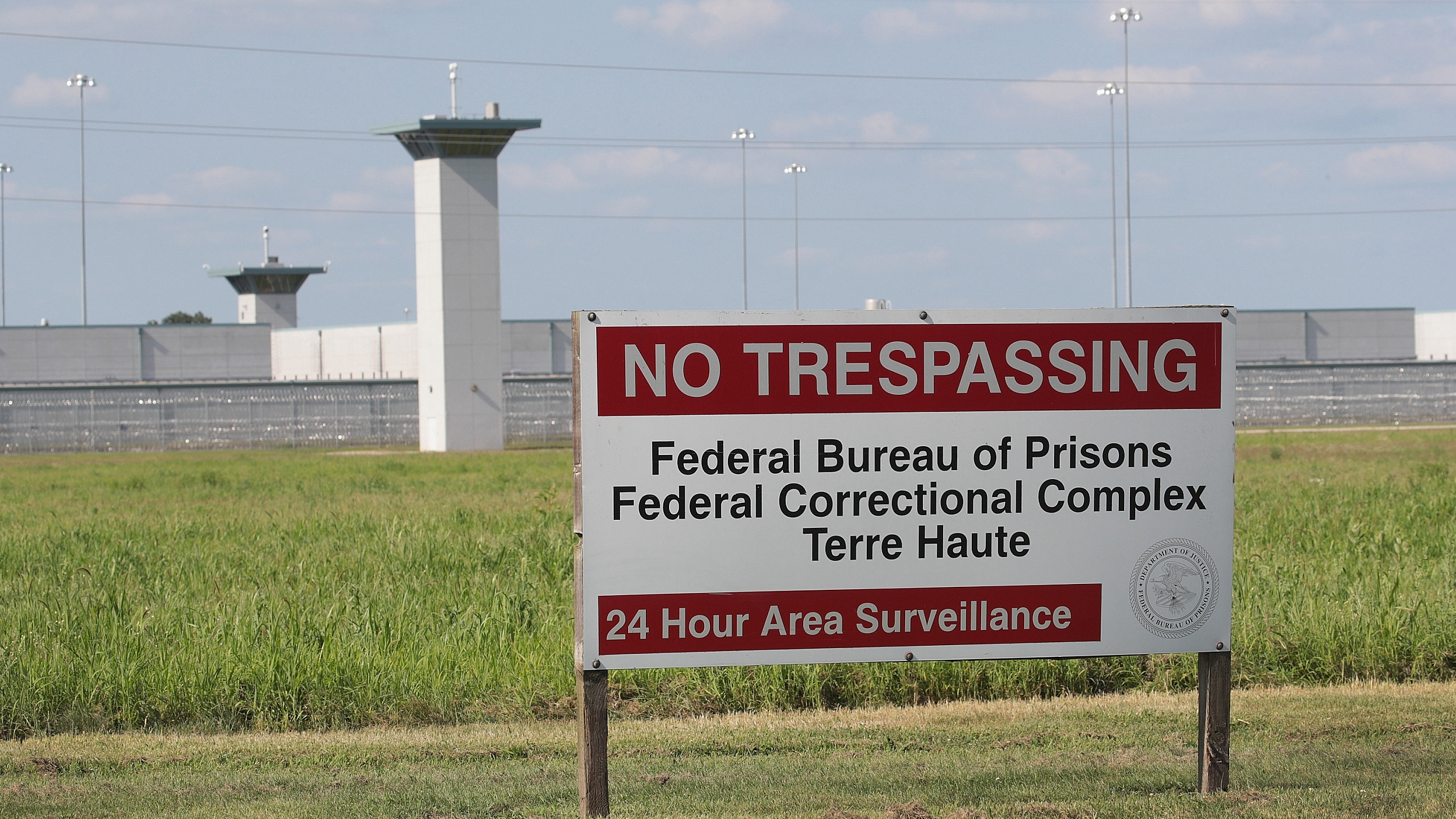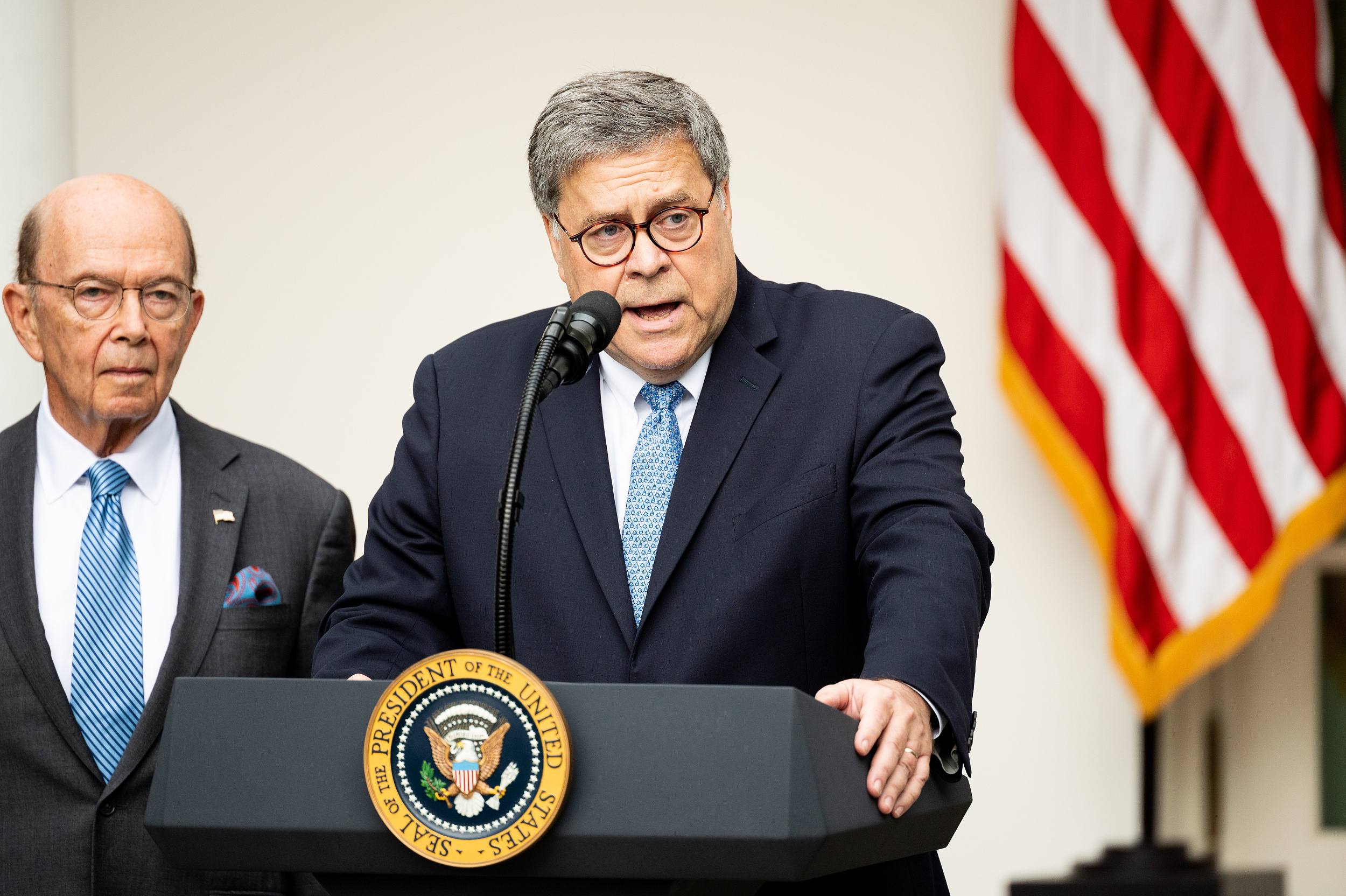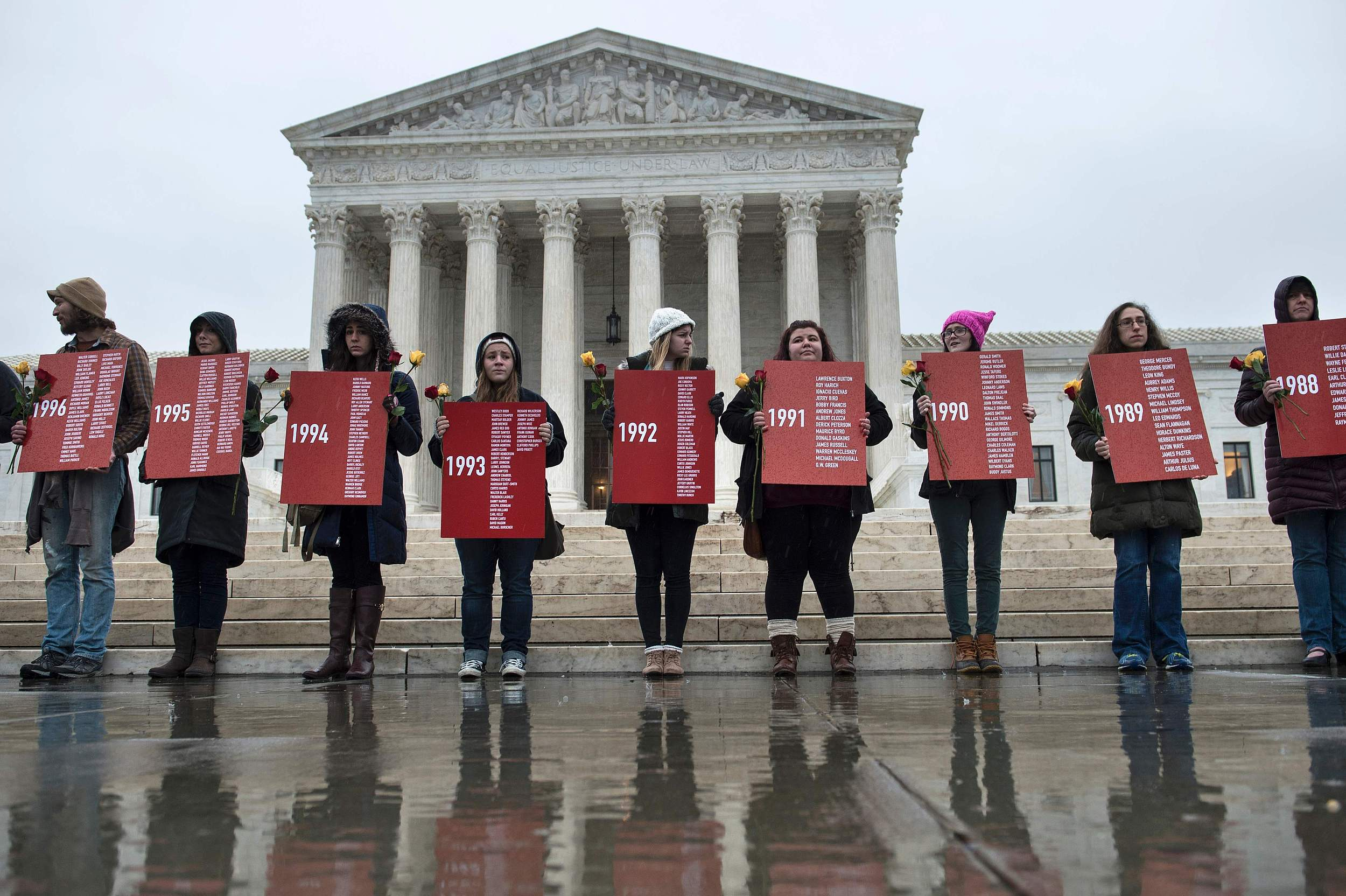

The U.S. Justice Department (DOJ) announced on Thursday it was reinstating the death penalty at the federal level after a 16-year hiatus, with five executions scheduled as early as December.
Attorney General William Barr issued a directive to the Federal Bureau of Prisons (BOP), "clearing the way for the federal government to resume capital punishment after a nearly two-decade lapse, and bringing justice to victims of the most horrific crimes," read a statement from the DOJ.
Barr also ordered the BOP to schedule the executions of five inmates already on death row for murder and rape.
Federal executions had been on hold since 2003, although they continued to be carried out at the state level.
In the U.S., a person can be charged with a federal crime when it involves a federal agency or federal property, if the crime is committed across state lines, or if its falls outside a state's jurisdiction.
Only three people were executed at federal level between 1988 and 2003.
President Donald Trump has been keen on bringing back the death penalty and apply it more widely, including against drug traffickers.
In his statement on Thursday, Barr argued that: "The Justice Department upholds the rule of law – and we owe it to the victims and their families to carry forward the sentence imposed by our justice system."
Read more: 'Ineffective, irreversible, immoral': California governor halts death penalty

Attorney General William Barr speaks at the White House, July 11, 2019. /VCG Photo
Dwindling support
Since 2004, over 600 inmates have been executed in the U.S. by individual states, the vast majority in Texas, but also in Oklahoma, Ohio, Florida, Georgia and Alabama.
In total, 29 U.S. states still allow the death penalty.
However, the number of executions nationwide has steadily dropped in the past two decades, amid worries that judicial errors can lead to innocent people getting executed and concerns over the methods of execution, with critics complaining that a drug cocktail used for lethal injections constituted inhumane treatment.
Opponents of capital punishment have also complained that the legal system is skewed.
"Almost everybody who is on death row is poor," Robert Brett Dunham, executive director of the Death Penalty Information Center, told Reuters.
"You are more likely to be capitally prosecuted if your victim is white. But irrespective of the race of the victim… you're more likely to be sentenced to death and you're more likely to be executed if you're a defendant of color," he added.

Activists hold signs with the names of people executed in the United States since 1977 during an anti-death penalty protest in front of the U.S. Supreme Court in Washington, D.C., January 17, 2017. /VCG Photo
Public support for the death penalty had been shrinking since the '70s. A Pew Research Center survey found that in 2016 about 49 percent of people were in favor, compared to 78 percent in 1996. That changed in 2018 when support for the death penalty rose again to 54 percent after a four-decade decline.
In March, California's Gavin Newsom became the latest governor to put a halt to death sentences in his state. Four states – California, Colorado, Oregon and Pennsylvania – now have a moratorium on capital punishment. Another 12 have not executed anyone in at least seven years, according to data from the Death Penalty Information Center.
A 'barbaric practice'
The Justice Department's announcement on Thursday was met with a chorus of disapproval from rights groups.
The Southern Poverty Law Center slammed capital punishment as a "barbaric practice" that "serves no useful purpose," noting that "the criminal justice system in this country is broken, racial disparities abound, and the possibility of executing an innocent person is very real."
The American Civil Liberties Union (ACLU) said it would challenge the decision in court, arguing that it was "completely out of step with the American people and justice at large. The DOJ is on the wrong side of history again.”

Lethal injection facility at San Quentin State Prison in San Quentin, California, March 13, 2019. Handout photo provided by the California Department of Corrections and Rehabilitation /VCG Photo
Campaign issue
Presidential candidates spoke out against the move, with California Senator Kamala Harris, a former prosecutor, tweeting: "Capital punishment is immoral and deeply flawed. Too many innocent people have been put to death. We need a national moratorium on the death penalty, not a resurrection."
Fellow Democratic senators, Bernie Sanders of Vermont and Cory Booker of New Jersey, also called for the practice to be abolished.
"The death penalty is not justice – it's an immoral and ineffective form of punishment that has killed innocent people, and is biased against people of color, low-income, and those with mental illness," Booker tweeted.
The five men due to be executed were convicted of multiple murders and rape, including of children. The executions are to be carried out between December 9 and January 15, 2020 at the U.S. Penitentiary in Terre-Haute, Indiana.

Copyright © 2018 CGTN. Beijing ICP prepared NO.16065310-3
Copyright © 2018 CGTN. Beijing ICP prepared NO.16065310-3